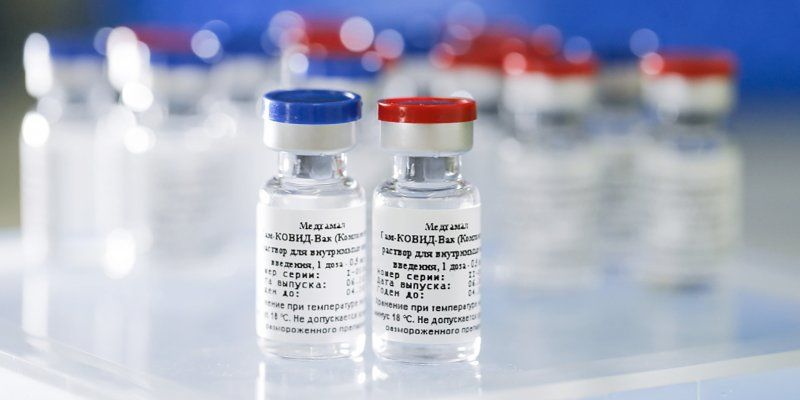Sputnik V data in Lancet should end “fake news” on its efficacy, says RDIF

The publication of data backing Russia’s COVID-19 vaccine Sputnik V in a peer review journal should bring a campaign to discredit the shot to an end, says the head of the Russian Direct Investment Fund (RDIF).
The new data – made available in The Lancet today – give the vaccine a protection rate of 91.6% after two doses, affirms its safety profile and suggests it can protect against both hospitalisation and death due to COVID-19.
RDIF chief executive Kirill Dmitriev told a news conference today that the results show that Russia “has been doing the right thing, from the beginning, despite a very active campaign to discredit this…vaccine.”
There had been criticism of the decision to roll out the vaccination programme before the final trial data was available, but commentators said it is now clear that Sputnik V is effective.
“The development of the Sputnik V vaccine has been criticised for unseemly haste, corner cutting, and an absence of transparency,” said Professors Ian Jones of the University of Reading and Polly Roy of the London School of Hygiene & Tropical Medicine in the UK, who were not involved in the study but wrote an editorial accompanying the Lancet paper.
“The outcome reported here is clear and the scientific principle of vaccination demonstrated, which means another vaccine can now join the fight to reduce the incidence of COVID-19,” they continued, noting that protection was seen in all age groups, including those older than 60 years.
The vaccine joins shots from Pfizer/BioNTech, Oxford University/AstraZeneca, Moderna and Johnson & Johnson among those that have large-scale trial data backing their efficacy.
It has some advantages, including that it can be stored at regular refrigeration temperatures – unlike the super cool temperatures required for mRNA vacines from Pfizer/BioNTech and Moderna – and is being made available for less than $10 per shot, according to the RDIF.
“The vaccine is 100% effective in preventing serious disease or death, which in the end is the most crucial parameter; we can all deal with the sniffles as long as we stay out of the hospital or the graveyard,” said Hildegund Ertl of the Wistar Institute in Philadelphia, US.
“Even after a single dose of this prime-boost regimen protection against disease was at 87.6%,” she added. That’s an encouraging finding given the limited supply of vaccines available.
Sputnik V has been registered in 16 countries around the world so far – including Hungary where the national regulator independently approved it in a move that caused tension with the rest of the EU – and the RDIF says around 25 more are poised to give it the green light.
“All the necessary documents” have now been submitted to the EMA for registration, said Dmitriev, and preliminary consultations with the EU regulator have taken place to support the application.
RDIF said again that the Paul Ehrlich Institute in Germany – which said last week that the AZ vaccine shouldn’t be used in over-65s although the EMA backed its use in all adults on Friday – is providing support to the Sputnik V filing.
Panellists on the call didn’t respond to questions about why a decision has been taken not to seek approval of Sputnik V in the US – currently labouring under the largest COVID-19 burden with more than 26 million cases and 443,000 deaths – even though RDIF is labelling it “a vaccine for all mankind.”
RDIF says it is however open to partnerships with other vaccine developers, saying it is about to start clinical trials with AZ to see if their shots can be combined, and is also looking at similar studies with a Chinese developer.
Image By Mos.ru, CC BY 4.0, https://commons.wikimedia.org/w/index.php?curid=93876006












